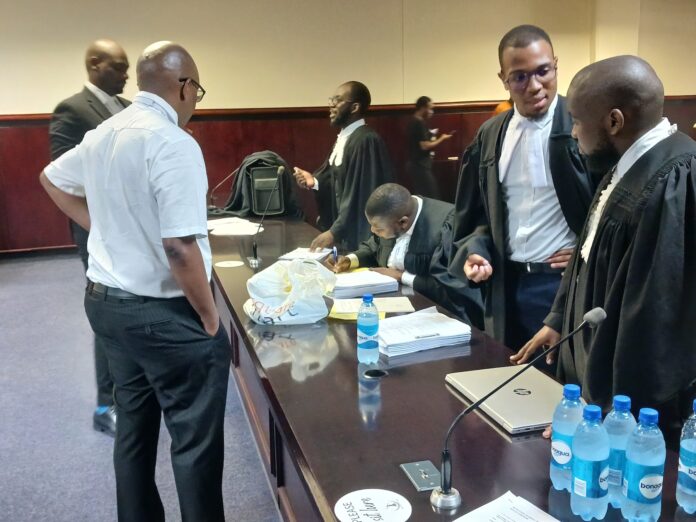The State has argued that the High Court does not have jurisdiction to overturn decisions of the Court of Appeal.
Representing the State, Tshiamo Rantao and Charles Batsalelwang made their case before Justice of Appeal Mercy Garekwe, asserting that such jurisdiction would undermine the established hierarchy of courts.
“The Court of Appeal is the final court of record,” argued Batsalelwang. He emphasized that decisions of the CoA are binding and cannot be challenged by the High Court.
“From the earliest developments of Roman and Anglo-Saxon law, there has always been a hierarchy of courts. Never could an inferior court overturn the decision of a superior court,” he added, citing precedents like the Mauwe and Kobedi cases, where challenges to CoA decisions were referred back to the same court.
Batsalelwang also warned, “Allowing the High Court to reverse CoA decisions would open floodgates of litigation.” He argued that if the High Court were permitted to entertain such applications, it would lead to “parties running to the High Court alleging violation of certain rights,” undermining judicial finality.
Justice Garekwe probed the State’s position, asking, “The High Court’s point of departure alleges exceptionality—where in law or precedent is such power conferred?” Batsalelwang replied firmly, “Only the Court of Appeal can review its own decisions, as indicated in the Mauwe and Kobedi decisions.”
Responding to allegations of bias in the CoA’s judgment, Rantao dismissed the claims as speculative. “It is very curious how the respondents arrived at the conclusion of bias. We wonder in what kind of setting this alleged discussion between the Court and the President occurred,” he said. Justice Garekwe pressed further, asking, “It has been suggested that there may have been a meeting between the Court of Appeal and the President that influenced the decision. What is your take?” Rantao reiterated, “There is no evidence to substantiate these allegations. The presumption must be that the CoA acted impartially.”
Rantao also emphasized the importance of resolving the matter urgently, stating, “The reputation of the Court of Appeal is at stake, and the general public confidence in the judiciary is at stake.” He argued that an expedited appeal would serve all parties, including the respondent. “It is not in Morupisi’s interest to prolong the uncertainty of his fate. It favors him to learn of his fate as soon as possible. It is his constitutional right to have his matter resolved without delay.”
Obonye Jonas, representing Morupisi, countered by asserting that the integrity of the CoA was not under attack. “There have been similar applications before,” he argued. He also insisting that the State had failed to demonstrate prejudice if the matter is addressed urgently. “What harm does the State suffer if the case is heard in the normal course?” he asked.
When Justice Garekwe challenged Jonas on whether “access to courts” justified opening floodgates of litigation, Jonas replied, “Access to courts is a constitutional right. Even if the floodgates open, this court will direct accordingly.”
Justice Garekwe will deliver a ruling on Wednesday January 8, 2025.



